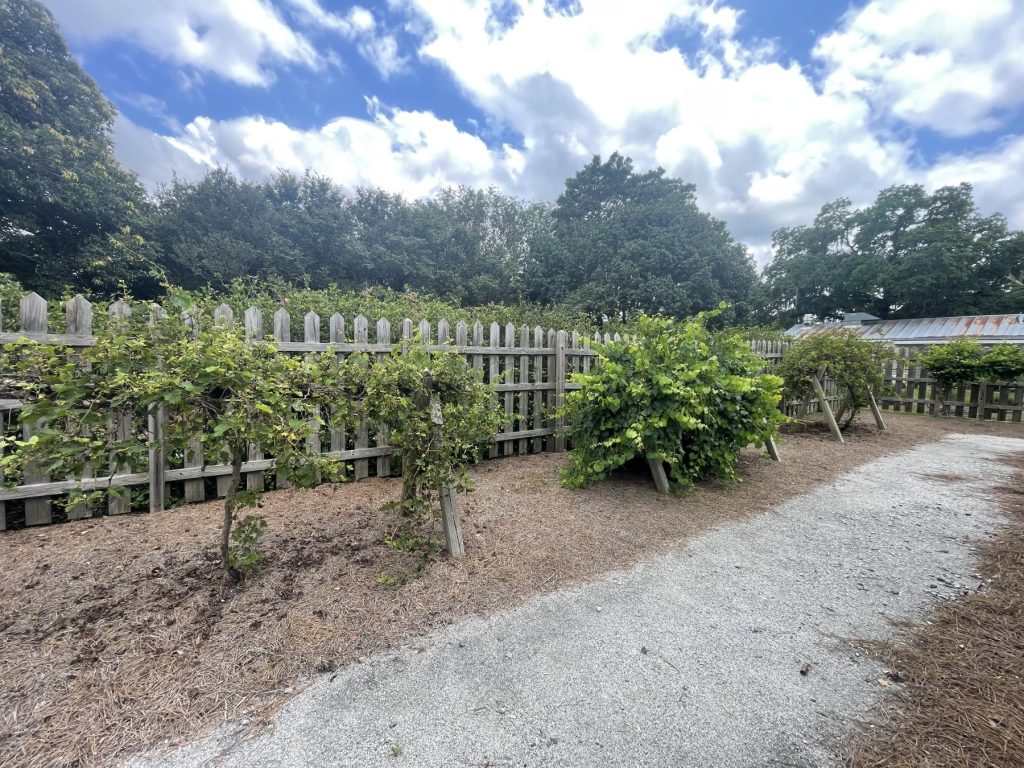
The Trustees Garden in the settlement of Savannah, Georgia, played a pivotal role in the early cultivation of grapes in the region. Established in the 1730s as an experimental garden, the Trustees Garden aimed to develop agricultural practices and promote economic prosperity in the newly founded colony of Georgia.
Grapes were among the crops grown in the Trustees Garden, showcasing the settlers’ efforts to cultivate vineyards and produce wine locally. It was believed the garden’s location near the Savannah River provided fertile soil and favorable conditions for grape cultivation.
The specific grape varieties cultivated in the Trustees Garden are not extensively documented. However, it is likely that European grape varieties, particularly those commonly grown in the colonies during that era, were planted.
Grapes harvested from the Trustees Garden would have been used for multiple purposes. They were consumed fresh, preserving the settlers’ connection to their European culinary traditions. Additionally, grapes could have been processed into juices, jellies, and other food products, providing sustenance and variety in the settlers’ diet.
Winemaking was another important aspect of grape cultivation in the Trustees Garden. The settlers aimed to produce wine for both local consumption and potential export, as wine was considered a valuable commodity. While the success of winemaking in the Trustees Garden is not well-documented, it marked an early attempt to establish a winemaking industry in the region.
Ultimately, Coastal Georgia’s soils and climate are not very suitable for growing quality grapes. The high heat and humidity are ideal conditions for diseases and pests of grape plants. The European varieties were likely abandoned fairly early in this experiment.
The Trustees Garden, with its cultivation of grapes and other crops, contributed to the agricultural development of Georgia and played a significant role in the early settlement of Savannah. It showcased the settlers’ determination to establish self-sufficiency and economic prosperity through the cultivation of diverse crops, including grapes. Today, the Trustees Garden serves as a reminder of Georgia’s rich agricultural history and the early beginnings of grape cultivation in the region.